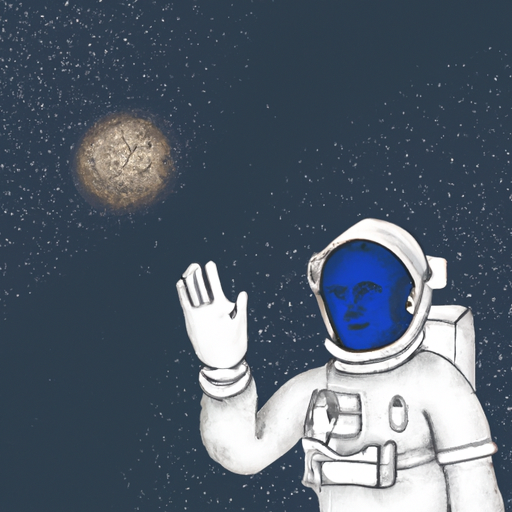
The Role of AI in Space Exploration: How Technology is Expanding Our Understanding of the Universe
-
Table of Contents
“Unlock the mysteries of the universe with AI: Exploring space like never before!”
Introduction
The universe is a vast and mysterious place, and space exploration has been a source of fascination for centuries. With the advent of artificial intelligence (AI), space exploration has become even more exciting and accessible. AI has enabled us to explore the universe in ways that were previously impossible, allowing us to gain a better understanding of the universe and its many wonders. AI has been used to develop new technologies for space exploration, such as autonomous spacecraft, robotic rovers, and advanced imaging systems. AI has also been used to analyze data from space missions, helping us to better understand the universe and its many mysteries. In this article, we will explore the role of AI in space exploration and how it is expanding our understanding of the universe.
The Future of AI in Space Exploration: What We Can Expect
The future of artificial intelligence (AI) in space exploration is an exciting prospect. AI has the potential to revolutionize the way we explore the universe, allowing us to go further and faster than ever before. In the coming years, AI will be used to automate spacecraft, analyze data, and even make decisions in real-time.
One of the most promising applications of AI in space exploration is the automation of spacecraft. AI can be used to control a spacecraft’s trajectory, monitor its environment, and even make decisions in real-time. This could allow for more efficient and accurate navigation, as well as the ability to respond quickly to unexpected events. AI could also be used to automate the process of collecting data from space, allowing for more detailed and comprehensive analysis.
AI can also be used to analyze data from space exploration missions. AI algorithms can be used to identify patterns in data, allowing for more accurate predictions and better understanding of the universe. AI can also be used to detect anomalies in data, allowing for the detection of previously unknown phenomena.
Finally, AI can be used to make decisions in real-time. This could allow for more efficient and effective decision-making during space exploration missions. AI could be used to identify the best course of action in a given situation, allowing for more efficient and effective exploration.
The future of AI in space exploration is an exciting prospect. AI has the potential to revolutionize the way we explore the universe, allowing us to go further and faster than ever before. In the coming years, AI will be used to automate spacecraft, analyze data, and even make decisions in real-time. This could lead to more efficient and effective exploration, as well as the discovery of previously unknown phenomena.
The Impact of AI on Space Exploration Missions
The impact of artificial intelligence (AI) on space exploration missions is undeniable. AI has the potential to revolutionize the way we explore space, allowing us to explore further and faster than ever before.
AI can be used to automate many of the mundane tasks associated with space exploration, such as navigation, data collection, and analysis. This can free up valuable time and resources for more complex tasks, such as mission planning and analysis. AI can also be used to identify and analyze patterns in data, allowing us to make more informed decisions about our missions.
AI can also be used to improve the safety of space exploration missions. AI can be used to monitor the environment and detect potential hazards, such as asteroids or other objects that could pose a threat to the mission. AI can also be used to monitor the health of astronauts and alert mission control if any issues arise.
Finally, AI can be used to improve the efficiency of space exploration missions. AI can be used to optimize the use of resources, such as fuel and energy, and to identify the most efficient routes for a mission. This can help reduce the cost of space exploration and make it more accessible to a wider range of people.
In conclusion, AI has the potential to revolutionize the way we explore space. It can be used to automate mundane tasks, improve safety, and increase efficiency. As AI technology continues to develop, it is likely that its impact on space exploration missions will only become more pronounced.
How AI is Helping Us Better Understand the Universe
The universe is a vast and mysterious place, and for centuries, humans have been trying to understand it better. Now, with the help of artificial intelligence (AI), we are making great strides in our understanding of the universe.
AI is helping us to analyze data from space-based telescopes and other instruments, allowing us to uncover new insights about the universe. For example, AI is being used to identify and classify galaxies, stars, and other celestial objects. AI can also be used to detect and analyze patterns in the data, such as the motion of stars and galaxies, which can help us better understand the structure and evolution of the universe.
AI is also being used to detect and analyze signals from space, such as radio waves and gamma rays. By analyzing these signals, scientists can gain a better understanding of the composition of the universe and the processes that are taking place within it.
AI is also being used to simulate the universe, allowing scientists to explore different scenarios and test theories. This can help us better understand the behavior of the universe and how it has evolved over time.
Overall, AI is helping us to make great strides in our understanding of the universe. By analyzing data, detecting signals, and simulating the universe, AI is allowing us to uncover new insights about the universe and its evolution.
The Benefits of AI-Assisted Astronomy and Space Exploration
The use of artificial intelligence (AI) in astronomy and space exploration has the potential to revolutionize the way we explore the universe. AI-assisted astronomy and space exploration can provide us with a greater understanding of the universe, allowing us to make more informed decisions about our exploration of space.
AI-assisted astronomy and space exploration can help us to identify and analyze objects in space more quickly and accurately. AI algorithms can be used to detect and classify objects in space, such as stars, galaxies, and planets, with greater accuracy than humans. This can help us to identify and study objects that may have been overlooked by traditional methods. AI can also be used to analyze data from space-based telescopes and other instruments, allowing us to gain a better understanding of the universe.
AI-assisted astronomy and space exploration can also help us to plan and execute missions more efficiently. AI algorithms can be used to analyze data from past missions and develop strategies for future missions. AI can also be used to identify potential hazards and risks associated with space exploration, allowing us to plan missions more safely and effectively.
Finally, AI-assisted astronomy and space exploration can help us to better understand the universe. AI algorithms can be used to analyze data from space-based telescopes and other instruments, allowing us to gain a better understanding of the universe. AI can also be used to identify patterns and trends in the data, allowing us to gain insights into the structure and evolution of the universe.
In conclusion, AI-assisted astronomy and space exploration can provide us with a greater understanding of the universe, allowing us to make more informed decisions about our exploration of space. AI can help us to identify and analyze objects in space more quickly and accurately, plan and execute missions more efficiently, and gain a better understanding of the universe.
Exploring the Possibilities of AI-Powered Space Probes
The potential of artificial intelligence (AI) to revolutionize space exploration is immense. AI-powered space probes could be used to explore distant planets and moons, search for signs of life, and even help us better understand the universe.
AI-powered space probes could be used to autonomously explore distant planets and moons. By using AI, probes could be programmed to make decisions and take actions based on their environment. This could allow them to explore areas that would be too dangerous or difficult for human astronauts. AI-powered probes could also be used to search for signs of life on other planets. By using AI to analyze data from the environment, probes could detect signs of life that would otherwise be undetectable.
AI-powered probes could also be used to help us better understand the universe. By using AI to analyze data from space, probes could help us better understand the structure and composition of the universe. AI-powered probes could also be used to detect and analyze distant objects, such as asteroids and comets, which could help us better understand the formation and evolution of the universe.
AI-powered probes could also be used to detect and analyze distant objects, such as asteroids and comets, which could help us better understand the formation and evolution of the universe. AI-powered probes could also be used to detect and analyze distant objects, such as asteroids and comets, which could help us better understand the formation and evolution of the universe.
The possibilities of AI-powered space probes are truly exciting. By using AI to explore distant planets and moons, search for signs of life, and better understand the universe, we could unlock a wealth of knowledge about our universe. With the right technology and resources, AI-powered space probes could revolutionize space exploration and help us unlock the mysteries of the universe.
Conclusion
The Role of AI in Space Exploration has been a game-changer in our understanding of the universe. AI technology has enabled us to explore further and faster than ever before, and has opened up new possibilities for research and discovery. AI has enabled us to make more accurate predictions about the universe, and has allowed us to explore more distant and unknown regions of space. AI has also enabled us to develop new technologies that can help us better understand the universe. AI has revolutionized the way we explore space, and has allowed us to gain a greater understanding of the universe.








